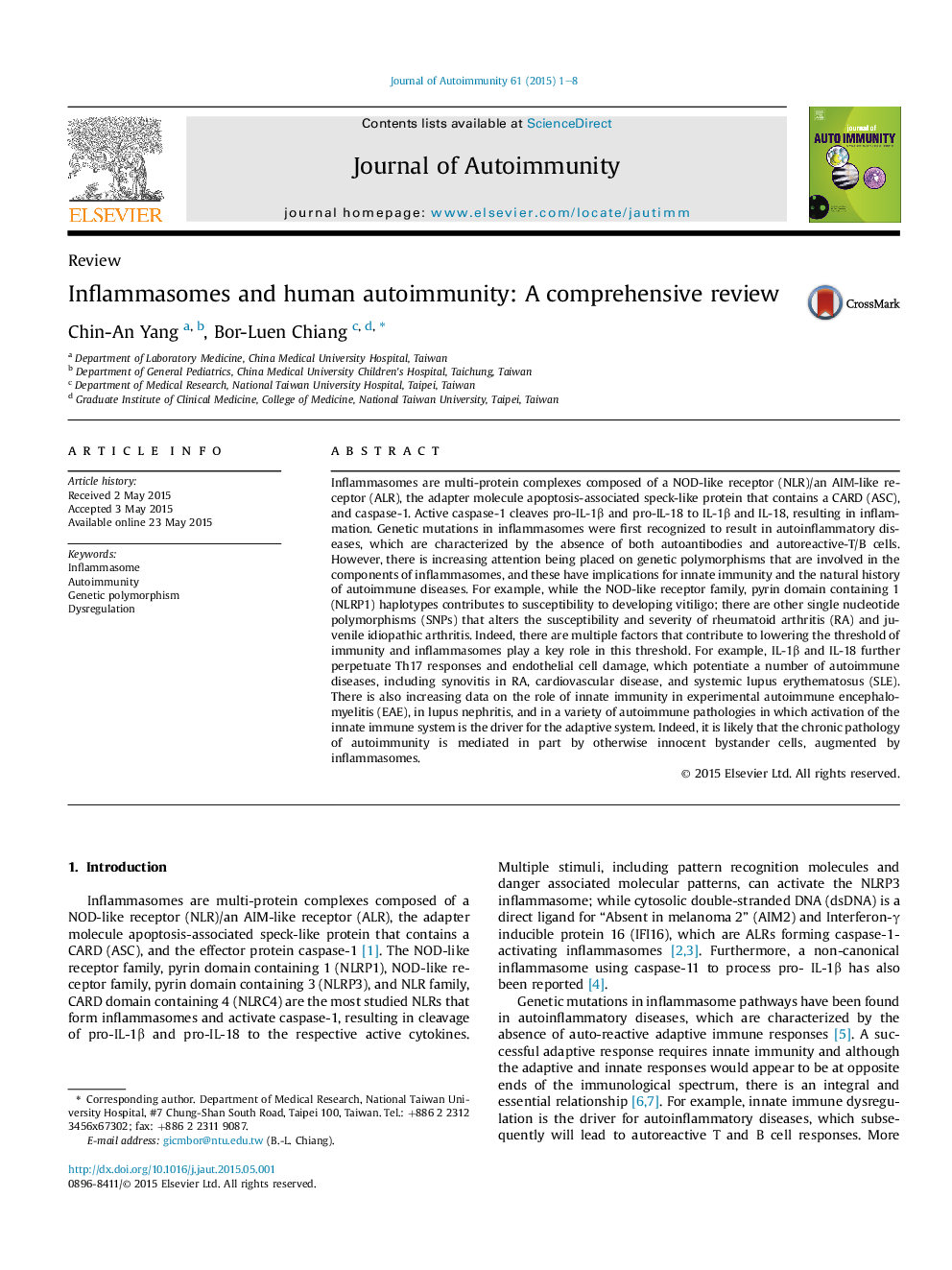| Article ID | Journal | Published Year | Pages | File Type |
|---|---|---|---|---|
| 3367706 | Journal of Autoimmunity | 2015 | 8 Pages |
•Large population genetic association studies concerning inflammasome SNPs and autoimmune diseases need to be performed.•Functional studies on the SNPs of inflammasome pathway proteins should reveal their roles in autoimmune pathogenesis.•Understanding the dysregulation of inflammasome in autoimmune diseases should aid in the development of better treatments.
Inflammasomes are multi-protein complexes composed of a NOD-like receptor (NLR)/an AIM-like receptor (ALR), the adapter molecule apoptosis-associated speck-like protein that contains a CARD (ASC), and caspase-1. Active caspase-1 cleaves pro-IL-1β and pro-IL-18 to IL-1β and IL-18, resulting in inflammation. Genetic mutations in inflammasomes were first recognized to result in autoinflammatory diseases, which are characterized by the absence of both autoantibodies and autoreactive-T/B cells. However, there is increasing attention being placed on genetic polymorphisms that are involved in the components of inflammasomes, and these have implications for innate immunity and the natural history of autoimmune diseases. For example, while the NOD-like receptor family, pyrin domain containing 1 (NLRP1) haplotypes contributes to susceptibility to developing vitiligo; there are other single nucleotide polymorphisms (SNPs) that alters the susceptibility and severity of rheumatoid arthritis (RA) and juvenile idiopathic arthritis. Indeed, there are multiple factors that contribute to lowering the threshold of immunity and inflammasomes play a key role in this threshold. For example, IL-1β and IL-18 further perpetuate Th17 responses and endothelial cell damage, which potentiate a number of autoimmune diseases, including synovitis in RA, cardiovascular disease, and systemic lupus erythematosus (SLE). There is also increasing data on the role of innate immunity in experimental autoimmune encephalomyelitis (EAE), in lupus nephritis, and in a variety of autoimmune pathologies in which activation of the innate immune system is the driver for the adaptive system. Indeed, it is likely that the chronic pathology of autoimmunity is mediated in part by otherwise innocent bystander cells, augmented by inflammasomes.
